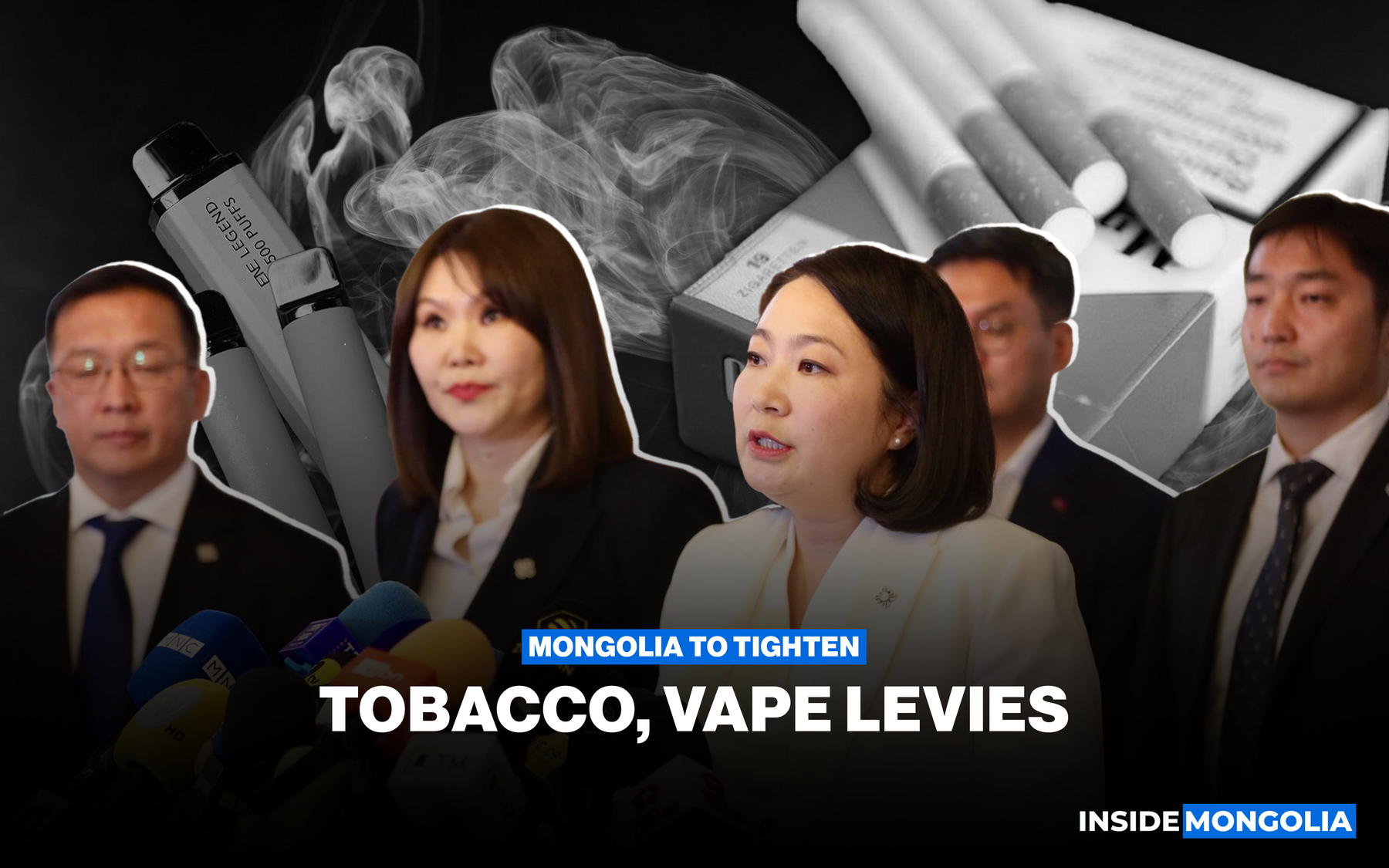Smoking Will Be Expensive

Parliament is moving to sharply raise excise taxes on tobacco products over the next 5 years, aiming to curb smoking and tackle mounting public health and economic costs. A draft bill, submitted by 76 lawmakers, also seeks to bring electronic cigarettes, rapidly gaining popularity among young people, under the same restrictions as traditional tobacco.
🚬 Tobacco Control in Mongolia: Long Road, Weak Enforcement
Mongolia introduced its first tobacco control law in 1993 and has revised it 8 times. Yet, enforcement remains weak. Regulators cite poor coordination and a surge in illicit trade as reasons why smoking rates, particularly among adolescents, have not fallen. Electronic cigarettes have emerged largely unregulated, fueling a new generation of nicotine users.
📈 A Serious Push This Time?
Under the proposed legislation, excise taxes on all tobacco products would rise in stages between 2025 and 2030. Lawmakers say the extra revenue will fund public health programs, from school nutrition and youth leisure activities to strengthened tobacco prevention and cessation services.
- Tobacco use is a serious problem: it accounts for roughly 17% of annual deaths in Mongolia, around 4,300 lives each year, and costs the economy ₮801 billion annually, about 2.1% of GDP. Officials argue that higher taxes could reduce consumption, lower healthcare costs, and boost long-term productivity.
“This reform is about safeguarding the health of our next generation,” lawmakers said, framing the tax hikes as both a public health measure and a fiscal tool to reduce the economic drag of tobacco use. If passed, the bill could become one of Mongolia’s most ambitious anti-tobacco initiatives yet.
Lastly… Mongolia’s tobacco control efforts highlight a common challenge in public health policy, as laws exist, but enforcement is the weak link. Loopholes, poor coordination, and illicit trade have undermined past efforts. The rise of electronic cigarettes shows that even when old laws work for traditional products, new trends can outpace regulation. The proposed tax hikes and tighter oversight could finally make enforcement more meaningful, but success will depend on rigorous implementation and public awareness campaigns.
Comment